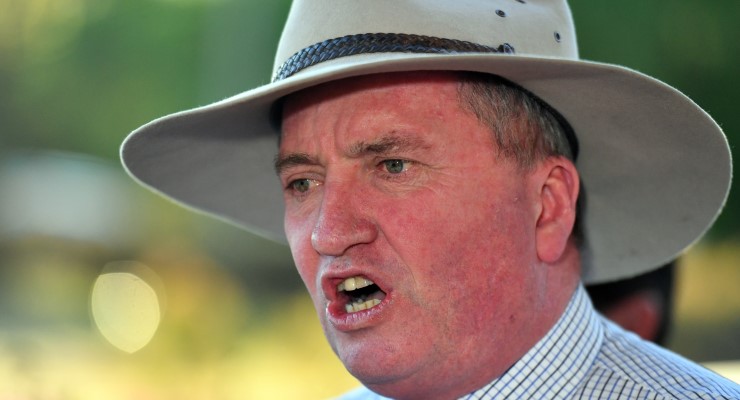
Last week, Minister for Government Services Stuart Robert tweeted an excruciatingly long thread, which he summarised thus: “having a whole of govt architecture allows us to build an ontology of capabilities across govt. Coupled with a more agile funding model, it will allow us to move more quickly when trying new solutions and capabilities or scaling up platforms to address emerging needs.”
It immediately earned its place in the (long and deliberately forgettable) book of impressively meaningless political jargon. Robert is, of course, in some illustrious company on this front.
- Former PM — and Crikey‘s most assiduous pen pal — Kevin Rudd, he of the “detailed programmatic specificity“, is the king of this kind of thing. Our favourite Ruddism comes from a 2008 press conference:
There has to be a greater synergy between, let’s call it our policy leadership in this, which has been focused so much, legitimately, on targets and global architecture, almost reverse-engineered back to the means by which you can quickly deliver outcomes, and on the demand side in our economy we’re looking at potential advances in terms of 20 to 25% range if you do this across the board. It all takes cost, but let me tell you it’s probably the quickest lever you can pull given the challenges we face.
- Usually, Barnaby Joyce’s crimes against language are of the late night brawl variety, but we were delighted to see that his considered approach is no less distinct, such as in his op-ed from The Australian earlier this year:
The Greens-Labor-independent alliance has its philosophical totem which it enforces by guilt to place more caveats over your assets and more impositions over your income streams.
- Julia Gillard could, at times, be devastatingly direct in her speech, but even she wasn’t immune. Here she is in 2010 on getting Australian troops out of Afghanistan:
I’ve got a very firm view that we need to be very clear that when we are transitioning our forces and transitioning leadership to local Afghan forces, that that needs to be irreversible. So there’s some intellectual labour that needs to be brought to bear when we say we’re going to engage in a conditions-based transition.
- And back in 1991, after Australian TV show Embassy caused offence in Malaysia, then-foreign minister Gareth Evans got himself double marks, combining functionally meaningless language with a for-the-ages non-apology, saying that he “wanted to acknowledge fault where such acknowledgement is appropriate”.
What’s your favourite piece of political nonsense-talk? Who do you think did it best? Send it through to boss@crikey.com.au. Please include your full name for publication.









Who would’ve thunk it? A culture warrior like Stewart peddling po-mo lit-crit bullshit.
Can’t compete with Morrison and Cormann’s blather that their secret Medevac deal with Lambie wasn’t a secret deal with Lambie.
Great stuff. However I cannot contribute my recollection of epic meaninglessness. The purpose of nonsense political statement is to render it forgettable. And it has clearly worked on me. Please make this a periodic item.
Charlie, you seem to be implying that such antics are fabricated but it may be more likely that the poverty of their respective vocabularies effect such Orwellian drivel from their speech-writers. As for Julia, a good deal of her statements in Parliament were (1) written for her [you OUGHT to know the source] and (2) throughly rehearsed.
Articulate presentations from “one’s feet” are a thing of the past. One only has to listen to the contenders for the 2020 US contest.
I hate to say it, but that makes perfect sense to an Enterprise Architect. Apart from dropping “ontology”, which was a bit over the top, I’m sure I written the same line any number of times!